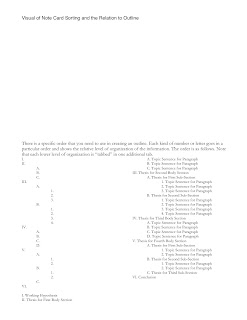Monday was a holiday to celebrate Veteran's Day!
Tuesday, 13 November, writers gave their toasts in class.
Thursday, 15 November
The prompt for the day was: "As rare as sun in November...."
Writer's who could not toast on Tuesday, toasted today.
We heard several pieces of Morbid fiction that have not perviously been shared.
Writers began by making a list that described who they are.
Mr. Zartler began the next unit with the following notes:
College Essays a form of the Personal Essay
A personal essay is a kind of a self-portrait. By telling
a story, and also sharing objective facts the author shows what kind of person
he or she is, and attempts to engage the reader in thinking about an event,
issue, or thing in a new way. By
examining some aspect of the world that anyone might experience, but showing
that examination from a personal point of view, the author tries to help the
reader connect the idea being examined to the rest of the world. Also the
author may reveal him or herself to the reader – particularly in an college
application personal essay.
The college essay is a special case. In a college essay
you want to “put your best foot forward.” However you want to avoid the clichés
and common pitfalls that the situation invites (see reverse). An art professor, who I hate, but who is
pretty smart used to say, “One way I judge a self portrait is by whether or not
I would want to have dinner with the artist.” He meant that when he looked at a self-portrait he was
looking to see if it revealed something interesting about the artist. You HAVE
HAD interesting experiences and thoughts: babysitting you little brother;
talking with you grandma; sitting on a swing…. You probably have not devised an
elegant solution to the problem of world hunger. Yet you have good friends,
people who have known you and seen you do dumb things and learn from them. Take
a risk: show yourself!
A Personal Essay Should:
ü Essay
reveals something about the author
ü Essay
prompts the reader to think through asking questions; challenging assumptions;
and introducing and examining multiple perspectives
ü Essay
grabs the reader’s interest
ü Essay
contains interesting language including imagery, vivid descriptions, specific
(rather than general) words; Essay employs the elements of story telling
ü Essay
is passionate with evidence of author’s knowledge of the subject
ü Essay
is presented in a careful, complete, and mechanically polished way.
ü Essay
avoids repetition
Think about SOAPS + Claim when considering your essay.
Your essay should have a Subject, Occasion, Audience, Purpose, Speaker, and a
Claim.
HOMEWORK: Writers are to write two pages on one of the following topics, or one page on two of the following topics:
Describe
any personal hardships or barriers you’ve had to overcome and explain how they
affected your education.
In
the context of your life experience describe your understanding of differences,
how this awareness was acquired, and how it has affected you.
What
motivates you?
Who
is your role model?
What
is your favorite book and why?
What
is significant either negative or positive that has happened to you and why was
it significant?
Who
do you consider to be a role model and why?
Are
there things that humans should not know?
What
makes you feel alive?
What
character in a book that you have read can you relate to best? How do you see yourself in this
character?
Discuss
some issue of local, national, or international concern and its importance to
you.
Evaluate
a significant experience, achievement, risk you’ve taken, or ethical dilemma
you have faced and it’s impact on you.
Describe
your room and relate it to you personality, interests, and dreams.
How
have you taken advantage of the education opportunities you have had to prepare
for college?
Tell
us a talent, experience, contribution, a personal quality you have to bring to
the school.
What
is the point of a high school education?









